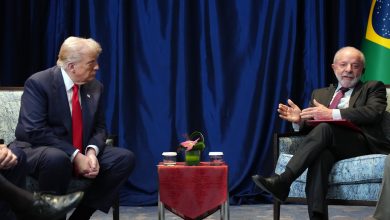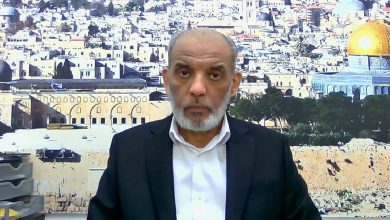Amid ongoing discussions regarding the future governance of the Gaza Strip, the Fatah movement has firmly stated its position that the head of any administrative committee must be a minister within the Palestinian Authority government. This declaration comes as various reports circulate concerning potential agreements between Palestinian factions and the Palestinian Authority regarding the leadership of Gaza in the post-conflict period.
Over the weekend, Fatah issued a statement refuting claims that it had already approved a specific candidate to lead an administrative committee in Gaza. Abdelfattah Doula, a spokesperson for Fatah, emphasized that the movement’s stance remains consistent and unambiguous: the individual in charge of such a committee must be a sitting minister from the Palestinian National Authority. Fatah views the PA as the legitimate body responsible for managing the affairs of the Palestinian people.
Doula further explained that Fatah’s insistence on ministerial leadership stems from a commitment to Palestinian unity and adherence to a single political authority represented by the Palestine Liberation Organization (PLO) and the Palestinian National Authority. This stance, according to Doula, aims to prevent the entrenchment of division or the legitimization of any structures that could rival the nationally recognized authority. The statement underscores Fatah’s apprehension about inadvertently creating parallel governance structures that could undermine the legitimacy of the Palestinian Authority and further complicate the already fragile political landscape.
The Fatah statement was issued in response to reports in Israeli media suggesting that Hamas and the Palestinian Authority had reached an understanding to appoint Amjad al-Shawa, a human rights activist, as the head of a technocratic committee tasked with managing Gaza during a transitional phase. These reports indicated that the formal confirmation of al-Shawa’s appointment was pending approval from the United States. As of now, Hamas has not officially commented on these reports.
Prior to the Israeli media reports, Hamas had released a statement describing the agreement among Palestinian factions to establish a professional, technocratic administrative committee for Gaza as a crucial and necessary step. This statement, released on Saturday, signaled a willingness among factions to collaborate on the future administration of the territory.
Earlier in the week, various Palestinian factions jointly announced their agreement, reached during a meeting in Cairo, to delegate the administration of Gaza to a temporary committee of technocrats from the Gaza Strip. The exact composition and mandate of this committee remain subject to ongoing negotiations. The identity of the factions participating in the Cairo meeting was not explicitly disclosed in the initial reports.
The current situation in Gaza is shaped by the ceasefire agreement brokered by the United States, which went into effect on October 10th. The proposed second phase of the U.S.-backed plan, however, remains a point of contention. This phase envisions the deployment of an international peacekeeping force, the withdrawal of Israeli troops from Gaza, the disarmament of Hamas, and the establishment of a temporary administrative body under the auspices of a new international transitional authority. This proposed authority, dubbed the Peace Council and ostensibly headed by President Trump, is seen by many as unrealistic and potentially disruptive to existing Palestinian political structures.
For more information about Palestine, check our dedicated section.
The lack of consensus on the composition and leadership of the administrative committee reflects the deep-seated divisions and competing interests among Palestinian factions. Fatah’s insistence on ministerial leadership highlights its desire to maintain control and prevent the emergence of alternative power centers in Gaza. Hamas, while expressing willingness to cooperate on administrative matters, is likely wary of ceding too much authority to the Palestinian Authority.
The appointment of a non-partisan technocrat like Amjad al-Shawa, as initially reported, could potentially bridge the gap between Fatah and Hamas. A technocratic administration, focused on addressing the immediate needs of the Gazan population, could help to rebuild infrastructure, restore essential services, and alleviate the humanitarian crisis in the territory. However, such an administration would likely require the support and cooperation of both Fatah and Hamas to be effective.
Ultimately, the success of any transitional administration in Gaza will depend on the willingness of all parties to compromise and prioritize the well-being of the Palestinian people. The ongoing discussions underscore the complexities and challenges of achieving lasting peace and stability in the region. The future of Gaza remains uncertain, but the need for a unified and effective governance structure is undeniable. The international community, particularly the United States and regional powers, will play a crucial role in facilitating dialogue and supporting the establishment of a credible and legitimate administration in Gaza.
Analysts suggest that the current back-and-forth between Fatah and Hamas is indicative of a power struggle that extends beyond mere administrative control. It represents a deeper competition for political legitimacy and influence within the Palestinian territories. The international community is closely monitoring these developments, recognizing that a stable and unified Gaza is essential for any future peace process. The appointment of a leader for the Gaza administration is not just an administrative decision; it’s a political one with far-reaching implications for the region’s future.
DZWatch will continue to provide updates and analysis on this developing situation, striving to offer comprehensive and unbiased reporting on the evolving political landscape in Gaza and the broader Palestinian territories.



